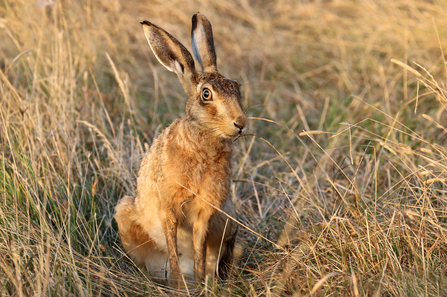The Wildlife Trusts believe that a healthy, wildlife-rich world is valuable in its own right and is the foundation of our wellbeing and prosperity; we depend on it and it depends on us. Here are our policy proposals for the future of farming and land management in England. We also publish an example of how such a policy could be applied in practice in the River Aire catchment in Yorkshire.
There is broad agreement that whilst it carries risks, leaving the EU’s Common Agricultural Policy (CAP) gives us a rare chance to improve an outdated system. For The Wildlife Trusts, it provides a chance to reverse the fortunes of wildlife and the natural assets (the soil, water and habitats) which post-war agricultural policy has depleted and which farming relies on.
The Wildlife Trusts have been working closely with farmers and we are also one of the UK’s biggest land managers, with around 100,000 hectares of land in our stewardship. We manage more than 20 farms and work with thousands of farmers every year, giving advice on managing land for wildlife. Like others who care about the natural world, we want to grasp this opportunity to give our wildlife the step up it so badly needs in the farmed environment.
I want to pull out three questions that are critical to our proposals for a future land management policy. I then look at the River Aire Catchment and how a new policy approach could be applied.


